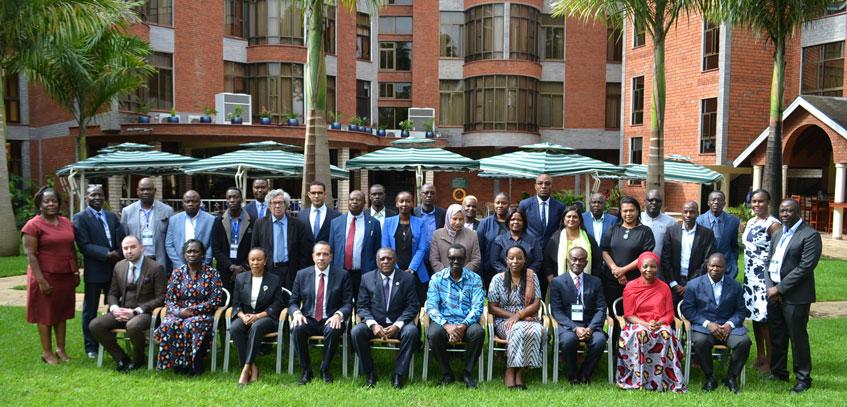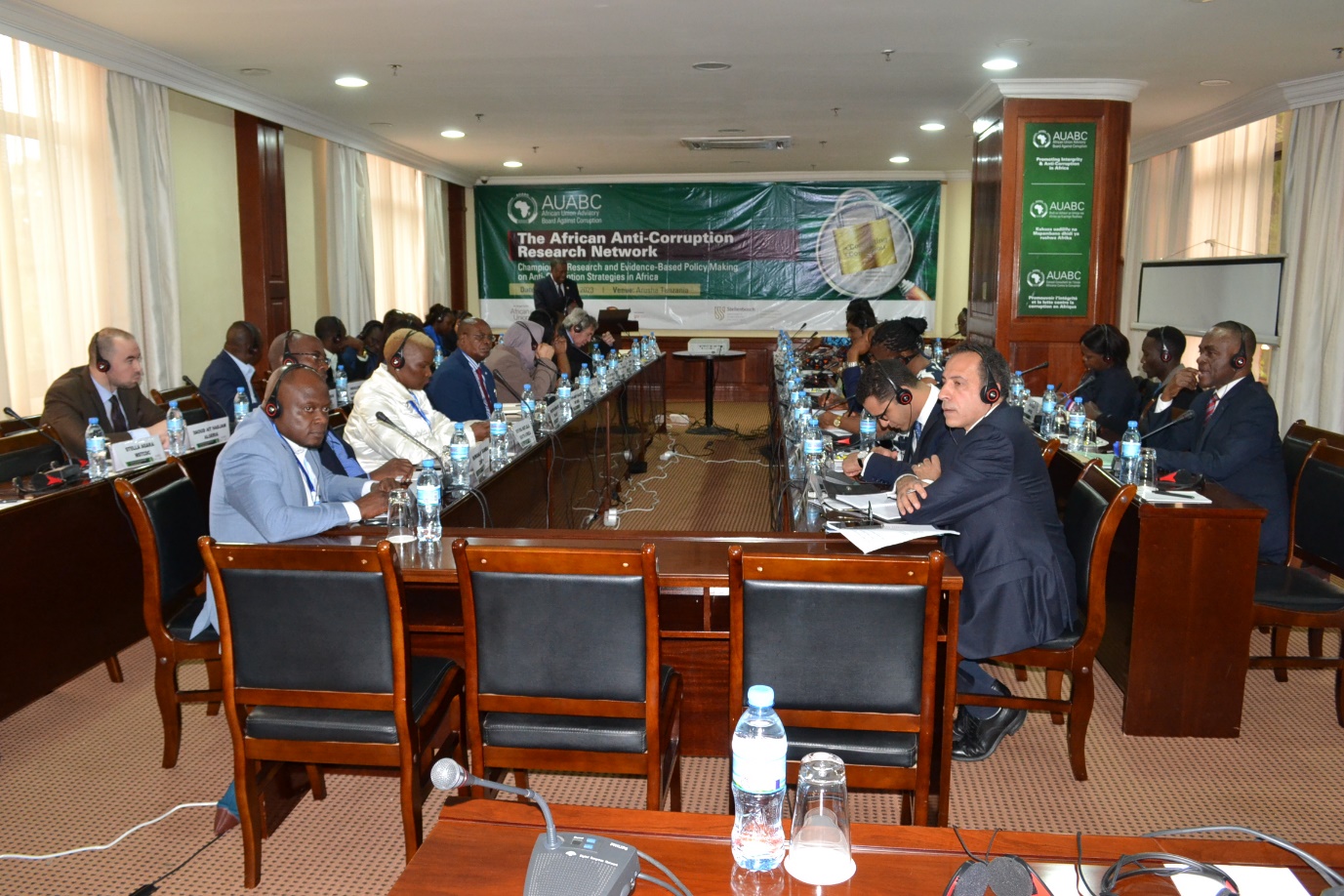Outcome statement for the Continental workshop on the formation of the African Anti-Corruption Research Network
May 11, 2023

Introduction
The African Union Advisory Board Against Corruption, in collaboration with GIZ and Stellenbosch University, convened a three-day Workshop (May 9 – 11, 2023) on the formation of the African Anti-Corruption Research Network (AACRN). The workshop was organized to bring together key stakeholders (researchers, research institutions/consortiums, national anti-corruption agencies/networks of anti-corruption agencies and other key stakeholders) to brainstorm on the establishment of the AACRN.

The discussion revolved around the existing research body on anti-corruption, identification of the linkages between research and the fight against corruption and public policy making. As well, the convening identified and highlighted research gaps within the National Anti-Corruption Agencies (NACAs).
The deliberations also explored modus operandi for a research network including the Governance structure, types of memberships, working methods of a research Network. Further, the meeting identified critical programmatic elements towards the development of actionable research agenda for the African Anti-Corruption Research Network (AACRN). At the end of the Workshop the delegates, formally adopted the establishment of the African Anti-Corruption Research Network (AACRN).
The following are the observational and Key Outcomes that arose from the presentations and deliberations during the workshop:
There is a need for research on corruption and anti-corruption to focus on the role of the multilateral institutions in promoting the fight against corruption
The AUABC should consider establishing a research Unit that would liaise with key stakeholders and have overall coordination of popularization of the Network’s research outcomes
The need for strong laws and mechanisms to deal with impunity within African Union Member States who have ratified the AUCPCC
The challenges of lack of clear definition of corruption and recommends that State Parties to the AUCPCC to consider a possible definition
Proposed that research should focus on assessing the efficiency and effectiveness of the National Anti-Corruption bodies
Conduct a mapping on the body of research available on the Anti-Corruption field/topic.
The need to establish scientific research structures to promote evidence-based advocacy against corruption
The importance of institutionalising research chair on corruption to facilitate coordination, resource mobilisation, advocacy and networking
The need to enhance accessibility of Anti-Corruption information, educational resources, and research outputs to policy-makers, scholars, the civil society organisations and the media, including training for Government Officials
The importance of increasing working alliances and strengthening partnerships between universities, research institutions and the NACAs in translating research into policy and practice
The need to have a systematic approach in fighting corruption that involves tackling cultural values beyond the legal and regulatory frameworks
There is a need to produce comparative research materials at a Continental level. This is important in triangulating cases in Africa, and come up with new ideas on areas of research, understand other perceptions, promote interdisciplinarity of the areas under consideration and compromise on areas of investigation
To have a strong youth engagement and representation to ensure sustainability of the intergenerational activities on combatting corruption
Recognising the positive trends within the NACAs in conducting various types of research, there is however, the need to strengthen research capabilities including financial and human resource areas, as well as establishing research units
Promote participatory/action research to enhanced public awareness, develop a research interface between researchers and community members, and introduce and develop a culture for demand-driven research interventions
The AACRN shall have a defined governance structure, refined objectives with key activities to facilitate the implementation of the research agenda including information dissemination, and the overall coordination network.
To strategize the next course of the Network, the participants elected an Interim Caretaker Executive Committee comprising AUABC, Stellenbosch University, Kenyatta University, Association of African Anti-Corruption Authorities(AAACA) Cameron Anti-Corruption Commission, African Association for Public Administration and Management (AAPAM) and Independent Researcher.
Arusha, United Republic of Tanzania
11th May 2023

